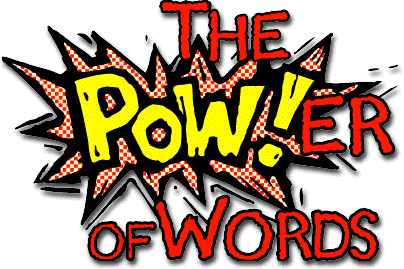Two of the most powerful words in the world
Posted on 29th March 2017 at 07:30
Over the last couple of years we’ve put various words under the spotlight. Want. Hope. Need.
And shown that they don’t quite have the meaning – or effect – most people assume they do.
As an side, “assume” is a great example of another much misunderstood word. Perhaps you’ve heard the saying “assume makes an ASS out of U and ME.” Need we say any more?!?
Without taking the time to notice the words we use automatically, it’s all too easy to undermine our best efforts by simply choosing the wrong words. And this applies whether we’re saying them out loud or thinking them.
So, this week, we’d like to highlight two very small words we all use many times each day. Would you like to guess what they are before reading any further?

And if you need a clue they only use a total of three letters between them…
Stuck?
Ok, we won’t keep the suspense going any longer. Here they are:
“I am.”
We bet you weren’t expecting that!
“I am.”
They look like such innocuous little words, don’t they? Well, yes they are.
It’s what comes after them that’s so important, as they literally shape our own little world.
Perhaps it’s something positive:
“I am happy.”
“I am inspired.”
“I am fortunate.”
More often it’s something negative:
“I am fed up.”
“I am stupid.”
“I am unlucky.”
Either way, these two little words have a magical power. They turn whatever follows them into our truth. And, once this happens, they bypass our conscious mind and become embedded into our subconscious mind as part of who we are.
Even worse, as soon as something is accepted by our subconscious mind as true; it becomes completely invisible to us. So, we’re not even aware of the potentially damaging seed that’s been planted in our mind; with the ability to colour everything that subsequently happens in our lives.
If this all sounds a bit” airy fairy”, here’s an “I am” statement you’ve probably said – or thought – about yourself at some time. If not regularly (!). It’s one we’ve seen in action recently with three people of different ages. A teenager, someone in their 50’s and another in their late 70’s. The words don’t sound like much but, despite this, they’ve caused a great deal of damage in these three lives.
So what are they?
“I am stupid.”
Did they each wake up one morning and decide they were stupid? No. Instead they each accepted what someone else said about them was true. That they were stupid.
Perhaps the person who said it to them wasn’t aware of what they’d said. Perhaps it was a simple case of misunderstanding what was said to them. Perhaps it occurred over a period of time rather than as a single catastrophic event.
Sadly, how it happened is irrelevant, as the damage had already been done. As soon as each of them accepted it was true it slipped past their conscious minds into their subconscious. And there it grew unnoticed, colouring every part of their lives.
This is the reason it’s so important to be aware of what we’re thinking – or saying – about ourselves. The internal advertising we’re running all day, every day. But, even more important, what we say about others especially children. After all, everything that anyone thinks or says is subjective – their own opinion. This doesn’t make it true.
So isn’t it time to notice what you’re saying – and thinking – about yourself and others. To ask yourself whether it really is true? Or helpful?
And replace it with something more positive and helpful.
“I am happy.”
“I am a good person.”
“I am optimistic about the future.”
“I am good at hockey / football / geography / maths / art / fill in the blank.”
If this is a step too far, how about:
“I am becoming happier every day.”
“I am becoming a better person every day.”
“I am becoming more optimistic about the future.”
“I am becoming better at hockey / football / geography / maths / art / fill in the blank every day.”
“I am: two of the most powerful words, for what you put after them shapes your reality.” Anon.
As always, the choice is yours.
Share this post: